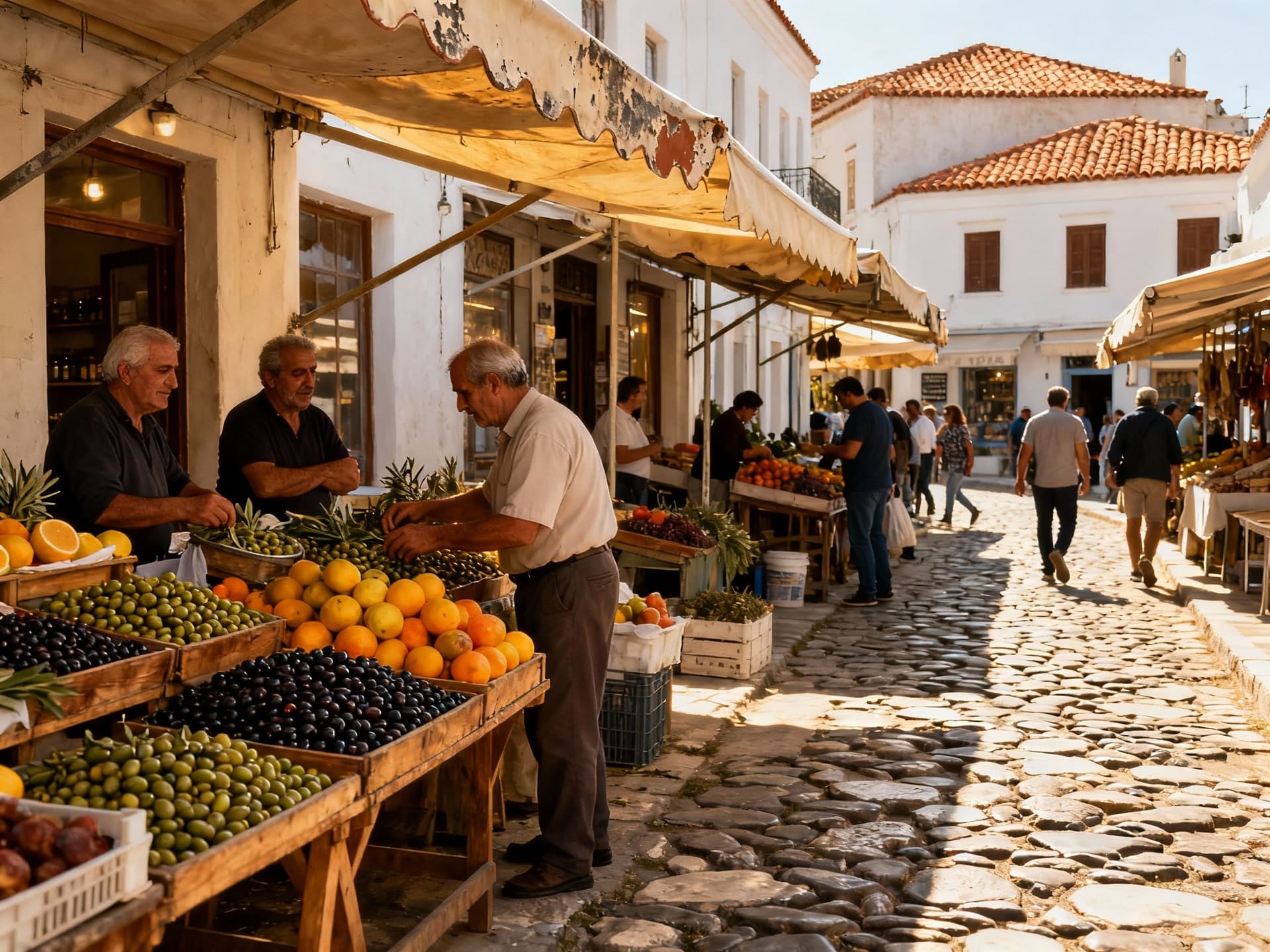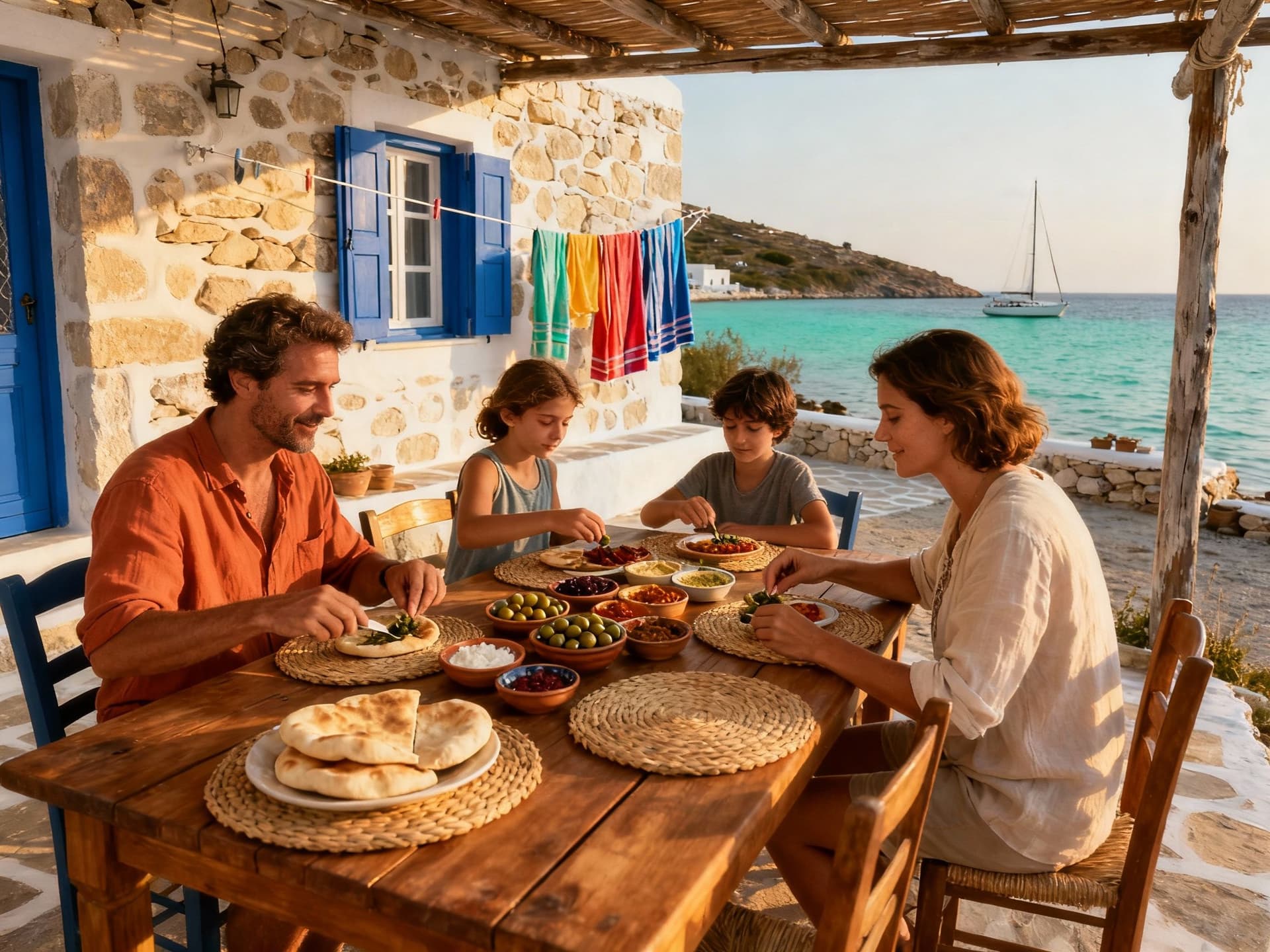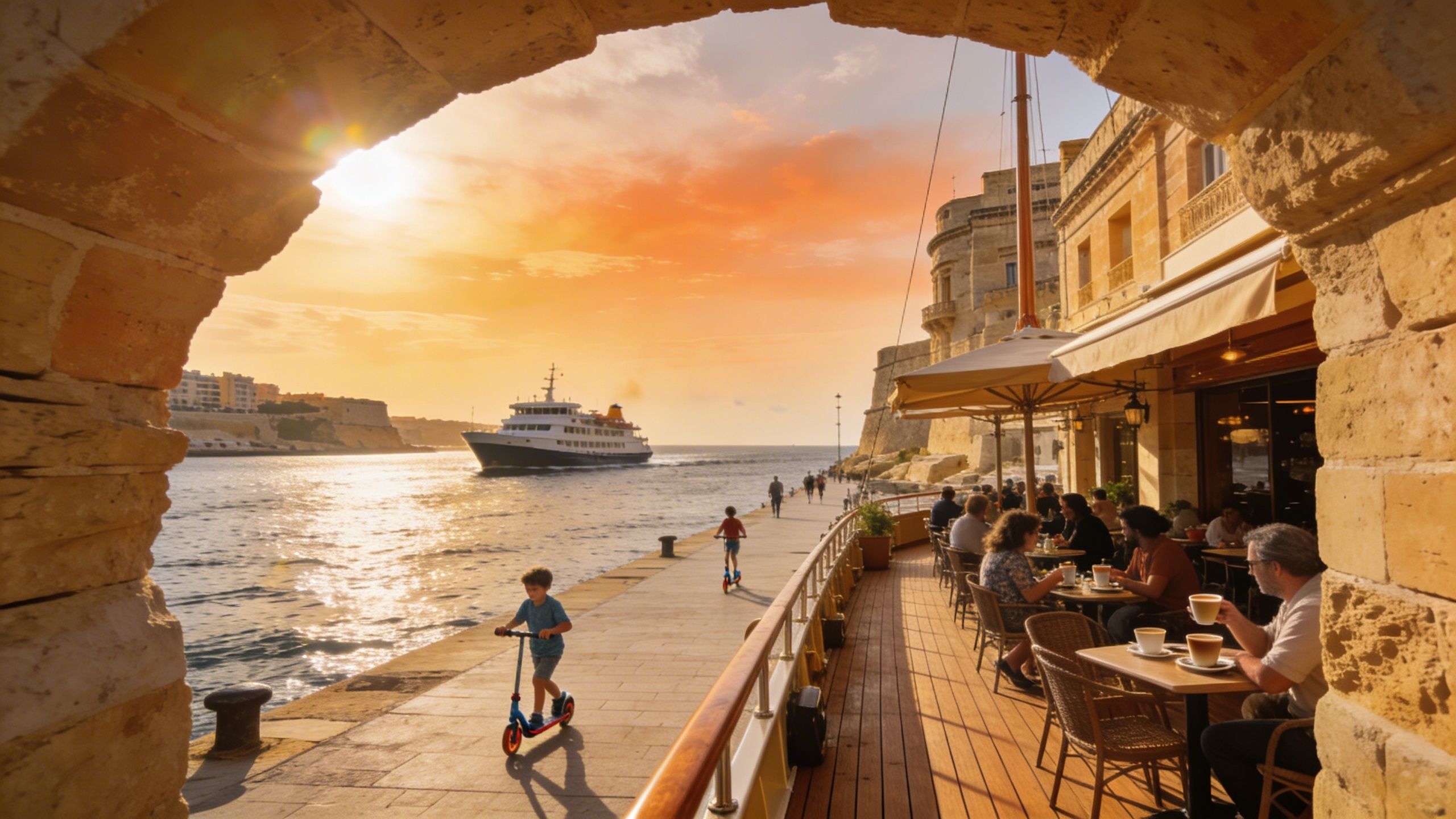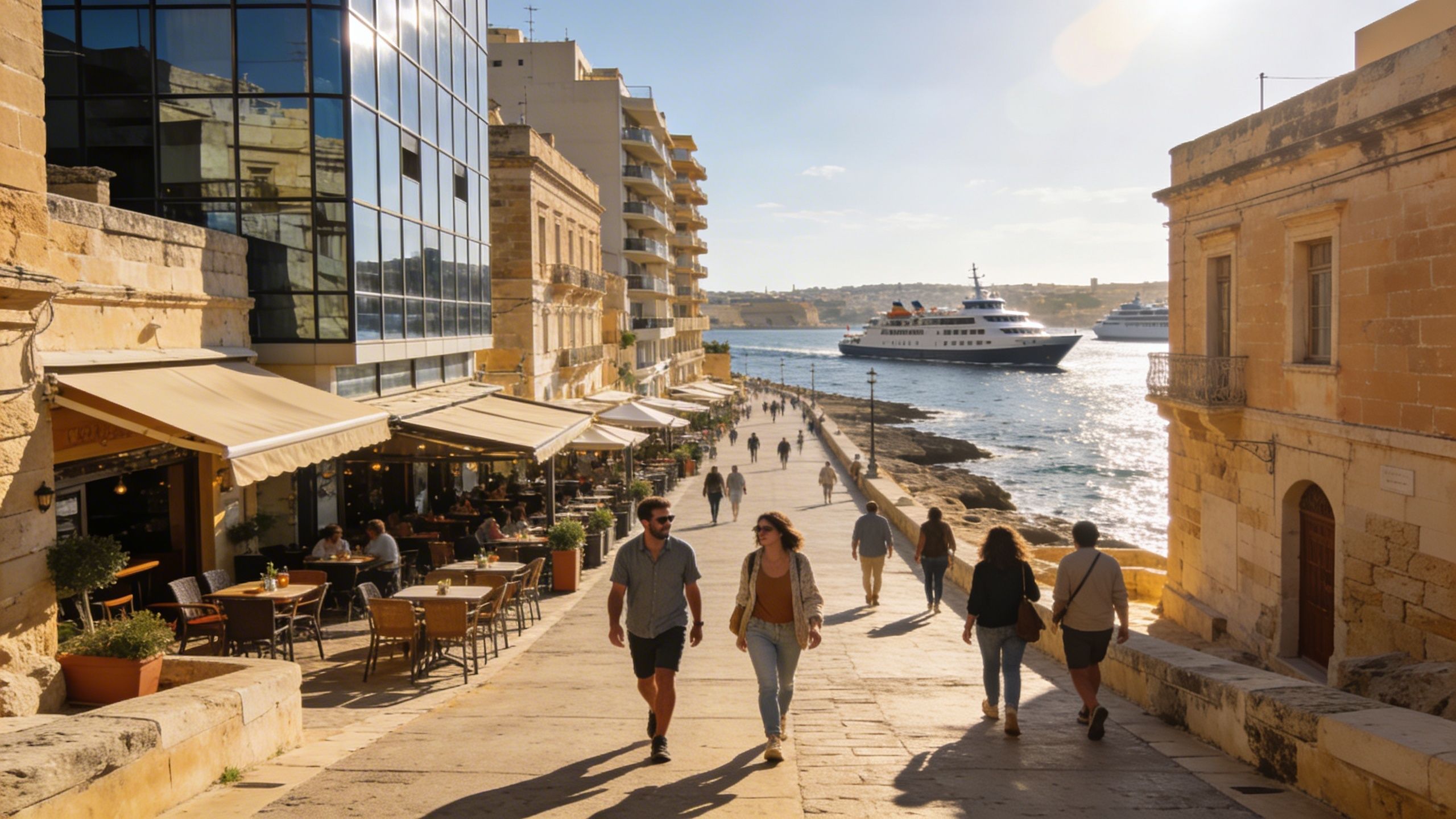Greece: Lifestyle‑Led Price Truths
Greece delivers metropolitan mornings and island afternoons; national indices show modest 4–5% real price gains, but local rules and tourism levies reshape where lifestyle meets value.
Imagine sipping an espresso at an Athens kafeneio on Kifissias, then catching a late ferry to a wind-swept Cycladic hamlet where whitewashed lanes smell of oregano and sea salt. Greece is that split-screen life: metropolitan mornings, island afternoons, markets that set your weekly rhythm. For many international buyers the romance is immediate. The practical question is whether that romance maps to clear, defensible value.
Living the Greek life — more than postcards

Daily life in Greece is sensory and local. In Athens neighborhoods like Koukaki or Exarchia you’ll hear late-night conversations spill from plateia; in Plaka you’ll find narrow streets where daily commerce is still human-sized. On the islands—Paros, Naxos, Corfu—the pace slows, shops close for siesta, and tavernas become meeting places. But not every island or district delivers the same lifestyle. Some islands are feeling the strain of overtourism and short-term lets, which alters both daily life and long-term price dynamics.
Neighborhood spotlight: Athens — Koukaki to Kolonaki
Walk Koukaki's tree-lined streets and you find coffee shops, family bakeries and restored neoclassical facades. Kolonaki sits higher on the scale: boutiques, private clinics, and embassies. Both areas are attractive to buyers seeking urban life, but legal changes targeting short-term rentals have begun to influence which streets retain year-round residents and which tilt toward transient, tourist-driven pricing.
Islands and the illusion of uniform demand
Mykonos and Santorini headline headlines and prices, but dozens of lesser-known islands show steadier, locally-driven markets. Those quieter islands offer better value and more authentic seasonal rhythms—important for buyers who want life, not only yield. Meanwhile, island municipalities and national government moves to clamp down on unsustainable short-term letting reshape future returns and livability.
- Lifestyle highlights — actual places to visit before you buy: • Koukaki (Athens): neighborhood kafeneia, Anafiotika lanes, pedestrian evening life • Plaka (Athens): tourist heart but quiet by dawn; good for heritage flats • Paros (Naoussa): windsurfing and young families, calmer off-peak scenes • Corfu Old Town: Venetian geometry, year-round community services • Naxos villages: farm-to-table markets and affordable stone houses
Making the move: prices, data and the timing that matters

Greece has been in a multi-year recovery from post-crisis lows. National house price indices show steady, moderate gains—real residential prices were rising at about 4–5% year-on-year in the most recent quarters. That growth is uneven: Athens and premium islands outpace many mainland regions, while rural areas and smaller ports show modest rises or flat pricing.
Property types and what they deliver
Apartments in Athens offer convenience, rental demand and comparably faster liquidity. Stone village houses give character and lower entry prices but often need renovation and have seasonal demand. Seafront villas and boutique island homes command premiums—sometimes several times the per-square‑metre price of mainland equivalents. Match the property type to the life you want, not the headline yield.
How local experts protect lifestyle value
- Step-by-step for lifestyle-led buying: 1. Spend 2–4 weeks living in candidate neighbourhoods across seasons to test rhythm and services. 2. Request historical rental and sales data from your agent for specific streets—not broad zones. 3. Check municipal planning rules and incoming tourism levies that may change short-term let economics. (See Reuters link on tax changes.) 4. Insist on energy and water-supply reports for island properties—utilities drive year-round living costs. 5. Negotiate clauses that protect against hidden conversion or licensing issues for intended use.
Insider knowledge: what expats wish they'd known
Expats often underestimate how policy and local sentiment reshape neighbourhoods. New levies and stricter short-term rental rules shifted several streets in Athens from investor-led returns to resident-focused stability. That shift can lower headline yields but improve long-term community value and day-to-day life—exactly what long-stay buyers prize.
Cultural and seasonal realities
Greek social life is communal and seasonal. Streets empty between 14:00–17:00 in summer; local festivals (panigyria) transform villages in August and September. Language can be a barrier—but showing local intent (learn a few phrases, shop at the market) opens doors. For buyers, blending with local life often means choosing a property near year-round services, not just a scenic summer bay.
Conclusion — fall in love with the life, then check the ledger. Greece offers a rare combination of everyday beauty and improving market fundamentals. Use national indices and regional pricing to set realistic expectations, live in target areas across seasons, and work with agents who share local street-level data and municipal insight. Do this and you buy not just a property, but a place where daily life feels like a reward.
British expat who relocated to Marbella in 2012. Specializes in rigorous due diligence and cross-border investment strategies for UK and international buyers.


